40 year rolling historic vehicle tax exemption confirmed: Which cars are now tax free?
.jpg?width=620)
Following the 2024 Budget announcement earlier this month, the Government has confirmed that historical vehicle tax exemption will continue on a 40 year rolling basis.
This means classic cars aged 40 years and over enjoy free car tax, also known as Vehicle Excise Duty, or VED.
So from April 1st 2024, cars built before 1 January 1984 will be eligible for Historical Vehicle status and therefore be exempt from paying car tax.
Do note, that’s cars built 40 years ago, not registered. It means that even if you have a car that was registered later, you can still get Historic Vehicle tax status if you can show it was built before 1 Jan 1984.
If you do not know when your vehicle was built, but it was first registered before 8 January 1984, you can still apply to stop paying vehicle tax.
A word of warning, though – you do still have to apply for car tax in the usual way, or you face the risk of an £80 fine.
You merely won’t have to pay a penny when you get to the DVLA's online car tax checkout.
How do I get historic vehicle tax exemption?
If you own a vehicle that was built before 1 January 1984, it is now now eligible for historical vehicle tax exemption. Your next step is to apply at a Post Office.
You need to take along the log book (V5C) in your name, your vehicle tax reminder letter (V11) and either evidence of a current MoT, or proof your vehicle is exempt from one (V112).
The Post Office will send your log book to the DVLA, and you’ll receive an updated one in the post.
You will then be able to renew your vehicle tax – and now not need to pay for it.
Five cars that will now be tax exempt in 2024
Alfa Romeo 33
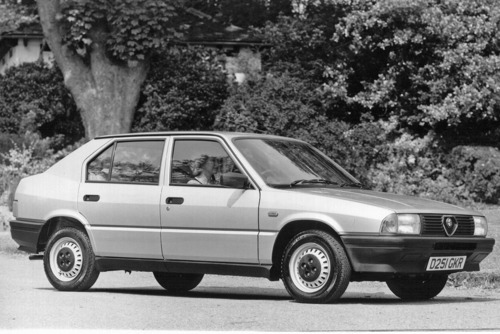
The Alfa Romeo 33 had the unenviable job of replacing the beloved Alfasud. It was an interesting blend of carryover Alfasud engines and chassis, combined with more angular styling, roomier interior and, yes, better rustproofing. Built between 1983 and 1995, almost a million Alfa Romeo 33 were built – and it also had a notorious sister car, the Alfa Romeo Arna, co-developed with Nissan, of which the less said, the better.
Austin Maestro
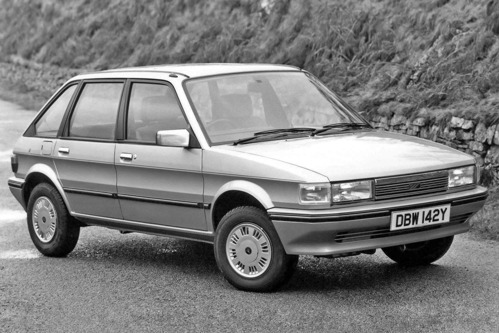
The Austin Maestro was the much-anticipated follow-up to the bright and modern Metro. Replacing the Austin Maxi and Austin Allegro, it was a better car than its predecessors, but somewhat awkward styling ultimately kept it from being a true rival to the best-selling Ford Escort. It was undeniably roomy though, and a sporty MG version later developed into a thrilling MG Maestro Turbo. By then, alas, the infamous talking dashboard was long gone…
Fiat Uno
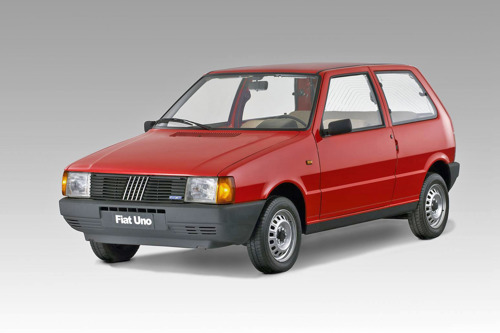
The Fiat Uno was a crucial car for the Italian firm to get right – and it did. The successor to the clever Fiat 127, the Uno remained in production until 1995 in Europe, and remarkably was built in Brazil right up to 2014. More than 8.8 million were made, putting it right up there in the rankings of most popular cars ever made. And why? Because it looked right, drove nicely, had a roomy interior and was super-affordable. Fiat hit the bullseye with the Uno.
Peugeot 205
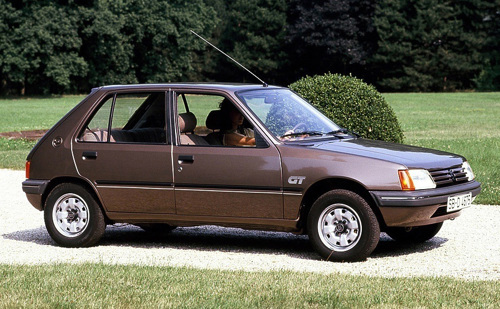
Another crucial hatchback launched in 1983 that ultimately saved the company, the Peugeot 205 is a quite perfect design that was so pretty at launch, it barely needed any sort of facelift throughout its long life. Impeccable to steer, early ones may have had ageing engines and bitty interiors, but they didn’t spoil the overall appeal – and Peugeot soon improved these to make the 205 pretty much perfect. Indeed, the Peugeot 205 GTI is a bona fide performance icon in its own right, giving the Volkswagen Golf GTI a run for its money as the best hot hatch ever.
Volkswagen Golf Mk2
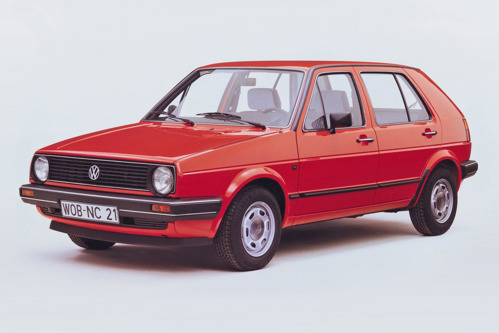
The Volkswagen Golf Mk2 was the car that cemented the model's reputation as a brilliant family all-rounder. Bigger, safer and more refined than the crisp-edged original, its reliability was renowned, and the way it drove made everyone feel secure. Backed up by some brilliant 1980s advertising campaigns, the most fabled Mk2 Golfs are the GTI 8v and spicy 16v, while the rare Golf Rallye was an interesting high-performance version that would be explored further in future generations.
When does a 1984 classic car become tax exempt?


